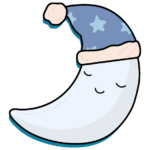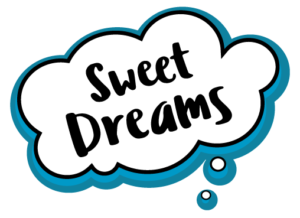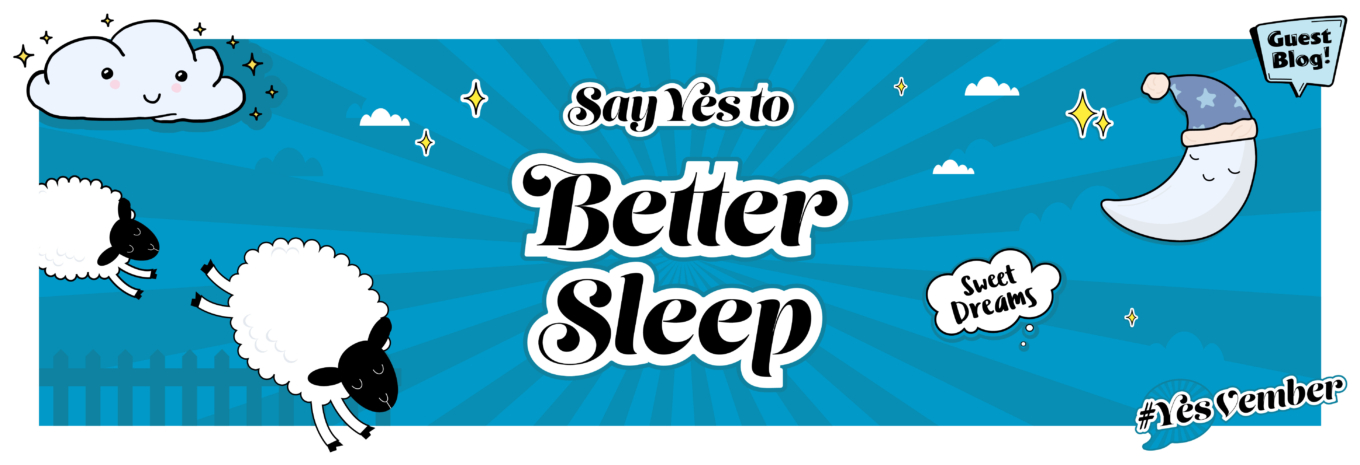“I’ll sleep when I’m dead”
Ok, but if you take that attitude…
“you will be dead sooner, and the quality of that shorter life will be worse”
That’s according to Matthew Walker, Professor of Neuroscience and Psychology at University of California Berkeley, and author of ‘Why we sleep, the new science of sleep and dreams’.
A harsh start to this blog I know. Yet alarmingly this sentiment is not just some ploy to get your attention, it is backed up by thousands of scientific studies carried out and researched by Matthew Walker.
We all know sleep is important, and yet we don’t always prioritise it. Why is that?
Do we really believe that sleep is that important? It feels quite counter intuitive, doesn’t it? How can sleeping help us get more stuff done? We can’t eat, or work, or look after our loved ones (human or animal), we’re more vulnerable when we’re asleep, and not conscious of what’s going on around us. So why on earth do we need to sleep?
Well, firstly, a lack of sleep could in fact kill you!
Not to mention other people you encounter.
How?
Well, driving without having had enough sleep, or ‘drowsy driving’ as Matthew Walker calls it, causes more accidents than drunk and drug driving combined!
Considering 2/3 of adults in developed nations, fail to get the recommended 8 hours of sleep, that’s quite a scary thought!
I became interested in the importance of sleep through my work as an Executive Coach. In my coaching programmes I support my clients to build emotional resilience by helping them to understand why they get hijacked by their emotions, and how to manage this hijack.
How much sleep you get has a huge impact on how likely you are to suffer from anxiety or frustration. This is because sleep helps us to process and detach emotions from the events of the day, particularly a certain type of sleep called REM sleep. MRI scans of the brains of people who are sleep deprived, have shown that their pre-frontal cortex (the part of the brain which enables us to think rationally and helps to keep our emotions in check) is less able to function, than in those that have had enough sleep.
Have you ever thought about an event or experience from your past (recent or distant) which at the time was very emotionally distressing for you? But now when you think about it, you can remember the event, but no longer experience the intensity of emotion you felt? Well that’s what sleep does. We often say that time is a great healer, when actually it turns out that it might well be sleep.
And there’s a whole load of science that shows the many other risks of not getting enough sleep too. Here’s my summary of 4 of those risks from Matthew Walker’s book:
 Not getting enough sleep:
Not getting enough sleep:
- Increases your risk of getting colds and flu, as well as doubling your risk of getting cancer, as it reduces your immune system’s ability to function
- Is a contributing factor to developing Alzheimer’s disease, because sleep plays a key role in making sure our memory works properly
- Increases the likelihood of your coronary arteries becoming blocked, which could lead to a stroke and heart problems
- May prevent you from losing weight, because it Increases your desire to eat more.
The World Health Organisation has found that countries whose populations have the least amount of sleep, also have the higher rates of the above health issues. In fact, it seems that every organ in the body, and process in the brain, is helped by sleep, and damaged by a lack of sleep.
“Sleep is the single most effective thing we can do to reset our brain and body health every day.” Matthew Walker
And it’s free!!
In fact, Matthew Walker suggests that Doctors should be prescribing sleep. But not by using sleeping pills, because he has found there are detrimental health consequences of using them, as well as how they don’t induce the kind of sleep we need.
So how else can we get more sleep?
Here’s 3 practical things you can do right now to help you get more sleep:
- Prioritise sleep over all other things. I know this is not always that easy to do. But if you start making it slightly more important in your life, you might start finding ways to do more of it.
- Create a routine around when you go to bed and when you get up, every day, (including weekends). Set an alarm to prompt you to go to bed as well as one to wake you up.
- Avoid alcohol before bed. Alcohol may relax you, and you may even sleep after a drink or two, but alcohol stops you having the important type of sleep known as REM sleep (which among other things, helps us to manage our emotions better)
I hope you have found this information useful. Matthew Walker’s book is very readable and very insightful, alarmingly so at times. I highly recommend it.
If you take just one thing away from this blog, let it be that you move sleeping up your priority list of things to do.
Steph Tranter for Alive!
Steph is a hybrid Executive Coach, merging the worlds of coaching and therapy.
















